6 Signs Your Body Needs More Nutrients
Do you have a nutritional deficiency? According to research, nutritional deficiencies may cause developmental failure, loss of various body functions, and several other diseases, such as diabetes, vision loss, immunity loss, and cancer. What are the major causes of nutritional deficiencies? Insufficient intake of food, inability to absorb nutrients, and consumption of diets that lack some of the essential nutrients. So, how do you know if your body needs more nutrients? Janine Bowring, ND, is a naturopathic doctor, best-selling author, researcher, and formulator. In a new video, she answers the burning question. "Here are six signs your body needs more nutrients," she says in the YouTube clip.
Muscle Spasms
The first symptom that can signal a nutritional deficiency? "Number one, muscle spasms," Dr. Bowring says, noting the symptom is also referred to as "Charlie horses." What does this signal? "A magnesium deficiency," she says, noting that you can take a magnesium supplement.
Teeth Grinding
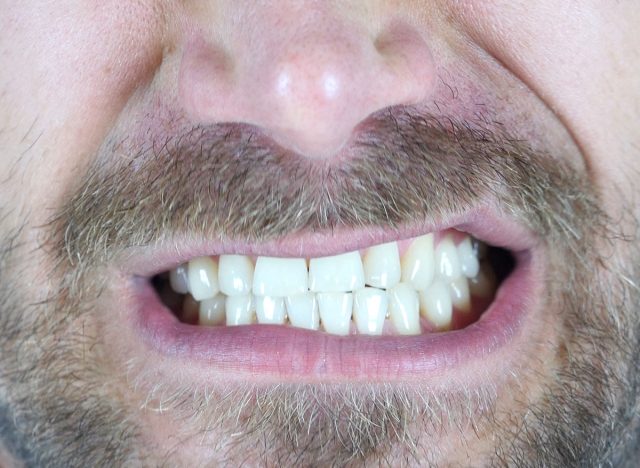
Do you wake up in the morning with a sore jaw? "Number two, if you grind your teeth at night, that can be an indication of parasites," she says. She adds that it could also be due to a probiotic deficiency. The solution? Amp up your probiotic intake. You can do this by eating a probiotic-rich food or taking a supplement.
RELATED: 5 High-Protein Smoothies to Burn Fat Every Morning
Keratosis Pilaris
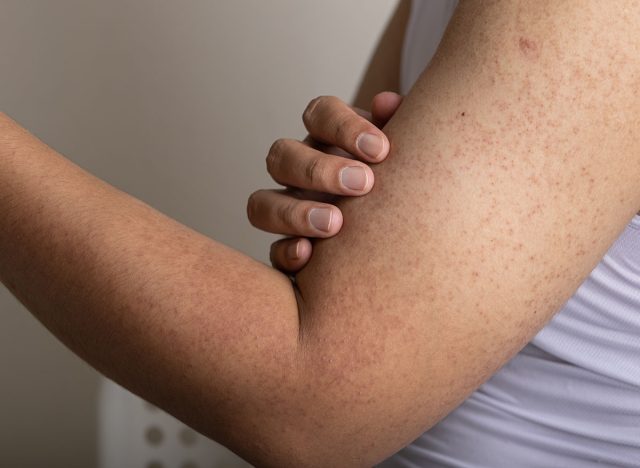
Nutritional deficiencies can manifest in dermatological issues. "Number three, keratosis pilaris," Dr. Bowring reveals. "Those bumps on the backs of the arms" may be a sign that you have a vitamin C and vitamin A deficiency. "You could have a low thyroid as well," she says.
Hair Loss
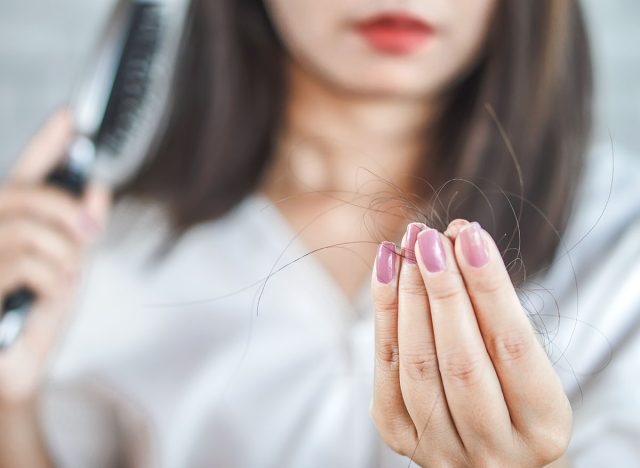
Does it seem like your hair is shedding? Number four on Dr. Bowring's list is hair loss. "This can be related to low iron, omega 3s, and low protein," she says.
Numbness or Tingling
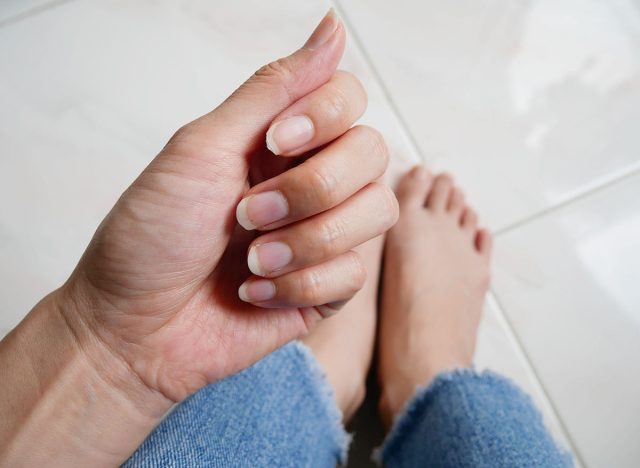
Another sign to look out for? "Number five, numbness and tingling in your fingers, in the extremities," Dr. Bowring says. This could be a B12 deficiency, she reveals.
Brain Fog

And number six, "probably the most common," is "a foggy brain, foggy thinking," she says. The most common culprit? "A DHA deficiency," she explains.
RELATED: I Lost 22 Pounds in 3 Months With These 7 Game-Changing Tips That Transformed My Body
Take Supplements
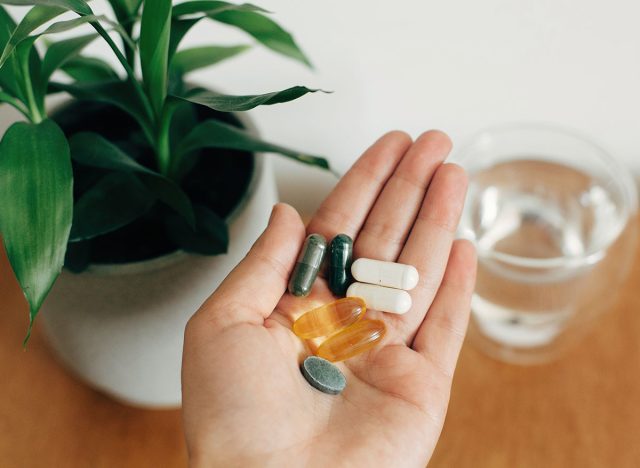
If you are lacking nutrients, Dr. Bowring encourages supplements. "So make sure you're optimizing your fish oil consumption, or maybe a high-quality DHA supplement," she says at the end of the video. And if you enjoyed this article, take advantage of these 15 Quick Ways to Lose Body Fat Percentage in a Week.





